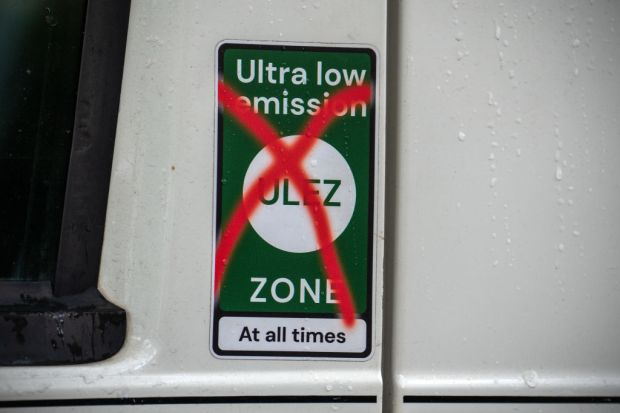Oxford councillors are feeling rattled by opposition to their proposal to divide the city into six districts and to limit the passage of road traffic between them. The city and county councils put out a press release last week accusing residents of spreading ‘misinformation’ about the scheme. It complained of abuse received from members of the public and said that its staff had been offered ‘support’ to cope with the tirade of abuse, the worst cases of which had been reported to police.
If anyone working for the council has been threatened then that, of course, is deplorable and quite properly a police matter. But are residents justified in complaining about the proposals?
The city council didn’t elucidate on the ‘misinformation’ it was complaining about, but there are two articles on climate sceptic websites JoNova and Watts Up With That which are believed to have upset them. Both used the term ‘climate lockdown’, which many might think a little over the top, but both articles also accurately reported what has been proposed: that is, to install six ‘electronic gates’ in the city, policed by automatic number plate recognition (ANPR) cameras and backed up with fines.
If councils want to go on acting as highwaymen, then they can’t expect to generate anything other than ill-feeling
The electronic gates will initially operate between 7 a.m. and 9 a.m. – but may later be extended from morning ‘til night. City residents will be offered 100 free ‘passes’ a year to allow them to drive through the barriers, and residents of wider Oxfordshire 25 free passes. During the times of operation, anyone will still be able to drive from one part of the city to another but will be forced to undertake a long detour via the ring road.
Besides the scheme’s environmental objectives, the city and county councils argue that the scheme will reduce congestion, allowing the bus network to operate properly. The councils’ objective is to re-engineer the city so that most people’s daily needs are within a 15-minute walk. However, that relies on people taking the bait and walking. If, instead of walking or cycling, residents continue to drive – taking longer, circuitous journeys via the ring road – then the scheme could end up causing more congestion.
As with Sadiq Khan’s Ultra-Low Emission Zone which, from August next year, will be extended to the whole of Greater London, the scheme doesn’t really distinguish between people who can easily walk, cycle or take public transport and those who cannot, such as delivery drivers. Are the councils sure that residents’ needs can be fully met within a 15-minute walking radius? We know from experience what will happen: not everyone will be able to enrol their children at the nearest school, or register at the nearest surgery. And God help anyone trying to register with an NHS dentist within a 15-mile drive – let alone a 15-minute walk.
But the most offensive aspect is the one that the councils seem proudest of. To try to calm fears about the scheme, they have put out a press release saying: ‘The traffic filters are not physical barriers of any kind and will not be physical road closures. They are simply traffic cameras that can read number plates. If a vehicle passes through the filter at certain times of the day, the camera will read the number plate and (if you do not have an exemption or a residents’ permit) you will receive a fine in the post.’
If there were physical barriers they would at least be easy to see. Electronic barriers policed by CCTV cameras, by contrast, are a trap for the unwary. It is not just Oxford. British roads are becoming infested with ANPR cameras backed up with charges and fines: from the London congestion charge, ULEZ zone, bridge and tunnel tolls and so on. Often, the tolls have a very narrow window in which they must be paid. All these schemes look to the world as if they have been designed with one aim in mind: to trap the unwary into running up stiff fines. Worse, the government has happily handed councils the power the hand out these fines, of up to £130 a time.
If we are going to have road pricing, then why can’t we have a single, nationwide system which wraps up all tolls into one monthly charge, which is easy to understand and where motorists are given a proper opportunity to pay? If, on the other hand, councils want to go on acting as highwaymen, springing hefty fines on the unsuspecting, then they can’t expect to generate anything other than ill-feeling.
The post Oxford’s highwayman campaign against motorists appeared first on The Spectator.
Got something to add? Join the discussion and comment below.
Get 10 issues for just $10
Subscribe to The Spectator Australia today for the next 10 magazine issues, plus full online access, for just $10.





















Comments
Don't miss out
Join the conversation with other Spectator Australia readers. Subscribe to leave a comment.
SUBSCRIBEAlready a subscriber? Log in